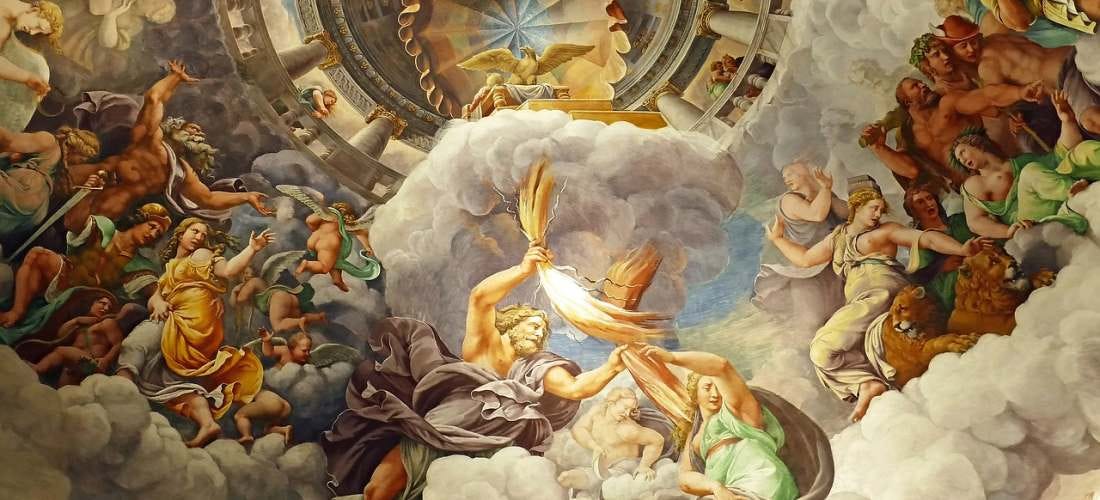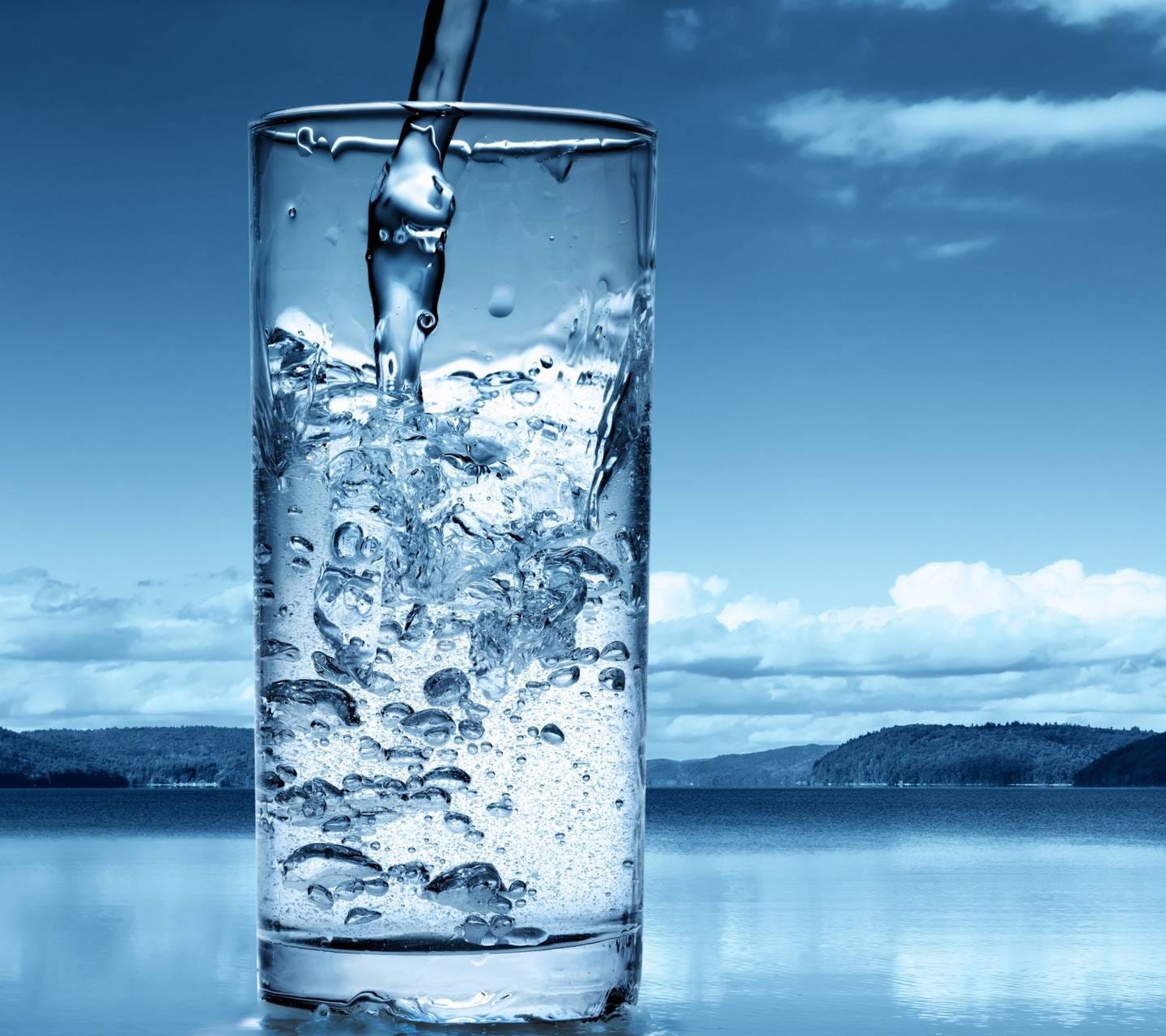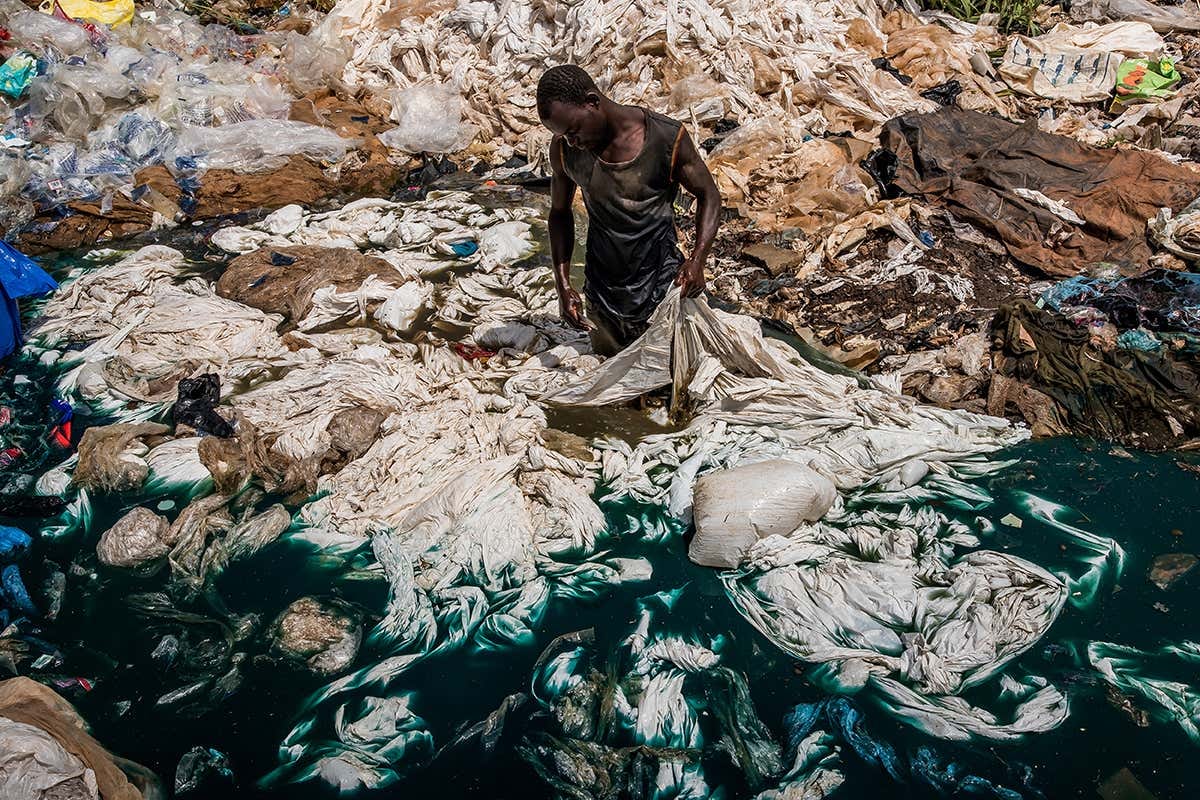Who Owns Everything?
Next to the air we breathe, there is nothing more vital to our survival than water. For the richest among us, owning water is the ultimate status symbol and proof that they own 'everything'.
One-time or recurring donations can now be made at Ko-Fi
You can listen to me read this essay here:
First of all, nobody really owns ‘everything’, or anything, for that matter. After all, you can’t take it with you, right? So, imagine if you’re a billionaire and you have everything—except you really don’t. You own mansions and jets, yachts and cars, and islands and farmland. You control what people eat and where they live and whether or not they can travel, and you fill their heads with the things you want them to think about and talk about. You’ve invaded their homes and listen to what they say and now you are well on the way to invading their minds. Politicians, celebrities, academics and news reporters parrot whatever you want them to say. Space is filled with your satellites and governments do your bidding. You start wars and you never finish them because they are far too profitable. You kill when and how you want and if you are feeling benevolent, you save a life here and there. And for that, you are given the highest praise and the most notable awards.
None of us can really conceive of what that kind of power would be like. It’s so far beyond the reaches of anything that we have ever experienced. Many of us have dreamed of having such power and wealth; ah, what it would be like to have such adulation heaped upon us! Goodness, how many of us wouldn’t like to get just one rung higher in the insurance company or the doctor’s office or the school in which we work. What would we be willing to do if we knew we could live on Mount Olympus with the other Gods?
But few can handle such power. We see what happens when a person wins the lottery and how quickly they descend again into poverty. The earthly gods despise ordinary folks for our weaknesses. They are sure they know so much better. But being able to handle all that wealth and power only means they are that much closer to the devil. Our earthly gods can try all they want to separate themselves from the rest of us, but there is a little problem that even they will encounter that they can do nothing about, and it is Death.
Death is the great equalizer, and it comes for us all one day. For those who have everything except immortality, how this must eat away at their minds. To have reached the pinnacle by which humans (sadly) measure success and to know that in the end they will still return to dust just like the rest of us, well, that must be hell on earth.
In my next essay, I will talk about two exceptional men who took entirely different approaches to this problem of death. But first, I want to lay the groundwork by talking about water.
Water is life. Next to the air we breathe, there is nothing more vital to our survival. Three days is as long as we can live without it. So, it makes sense that for the richest among us, owning water is the ultimate status symbol and proof that, indeed, they own 'everything'.
Meanwhile, the common man pays a high price for the water he consumes.
In 2012, Oregonian Gary Harrington was convicted on nine counts of water misuse for collecting rainwater in three ponds located on his private land and was sentenced to 30 days in jail.
We can compare Harrington to billionaire T. Boone Pickens who was said to have owned more water rights than any other individuals in America, with rights over enough of the Ogallala Aquifer to drain approximately 200,000 acre-feet (or 65 billion gallons of water) a year. But ordinary citizen Gary Harrington could not collect rainwater runoff on 170 acres of his private land.
This year, the World Economic Forum has warned us that “as much as half the world’s water supply is being stolen, with agriculture responsible for much of that”.
The theft of water takes various forms, including using treated drinking water without paying for it, and taking water from natural sources in breach of environmental guidelines. Agriculture, which accounts for 70% of global water use, is often to blame.
Without acknowledging the irony of such a statement, the WEF goes on to say that most often it’s poor and vulnerable people in developing countries who are stealing water. Stealing from whom? From corporations who have come in and bought up all the water that should be rightfully theirs.
So, who are these scoundrels who own most of the world’s water? To keep it simple we can focus on two companies, Veolia and Suez that announced a merger deal in 2021 worth nearly 13 billion euros.
The company, now called Veolia, has over 180,000 employees worldwide. It is in competition with China and competition from Goldman Sachs to hold onto its position of power in the water world:
In 2008 Goldman Sachs led a team of funds to buy U.S.$50 million of convertible notes in China Water and Drinks Inc., which supplies purified water to name-brand vendors like Coca-Cola. Since China has one of the worse water problems in Asia and a large emerging middle class, its bottled-water sector is the fastest-growing in the world and it’s seeing enormous profits. Additionally, China’s acute water shortages and serious pollution could “buoy demand for clean water for years to come, with China’s $14.2 billion water industry a long-term investment destination” (Reuters, January 28, 2008).
It’s always the same playbook. A small group of the world’s wealthiest elites first make money off of causing an environmental disaster and then make the public pay for a solution to the problem—which usually ends up causing more disasters that need to be solved.
Maude Barlow, author of Blue Gold, The Fight to Stop the Corporate Theft of the World’s Water, had this to say:
“It’s important to remember that it’s a very small, incestuous circle - these water companies, the World Water Council, the World Bank, the World Trade Organization, the IMF. There’s a lot of money to be made from the commodification of water, and these people know that whoever controls water is going to be both very rich and very powerful.”
In 2005 Paul Donahue wrote an article Who Owns the Earth’s Water?
Imagine for a moment what life will be like in the corporate-controlled world of the future. A handful of huge, powerful corporations will be responsible for all the societal services now handled by local, state and national governments - schools, police, prisons, military, mail, elections, social security, and so on. Even more importantly, corporations will control those things essential to human survival, namely food and water. If they can figure out a way to commodify the air we breathe, they surely will attempt to exert their control over the planet’s oxygen, as well. Services once provided by government agencies, accountable to voters, will be provided by corporations, accountable only to stockholders. With our governments in the sway of the corporations, our minimal democracy having eroded even further, and ultimate authority ceded to corporate- run international trade organizations, we will have lost the power to control the things most important to our survival.
Donahue certainly knew what he was talking about. He described the world we now live in perfectly.
Bolivian President Evo Morales, whose country currently holds the United Nations’s council presidency, noted that since 1947, some 37 conflicts have taken place between countries related to water.
"Our planet, the human family and life in all its myriad forms on Earth are in the throes of a water crisis that will only get worse over the coming decades," he said.
"If current patterns of consumption continue unabated, two-thirds of the world's population will be facing water shortages as a daily reality by 2025," Morales added.
Poorer nations whose water has been stolen from them can now have it sold back to them, thanks to companies like Cody Friesen”s Source Global, founded in 2015 to “get clean water where it’s most needed”. Investors include the usual suspects such as Bill Gates’ Breakthrough Energy Ventures and Blackrock.
Just like wind turbines and electric vehicles and the rest of the new gadgets these elites are pressing upon us in the name of “sustainability” and ending “climate change” (while simply exchanging one evil for another, more profitable one), Source Global boasts to be “the world’s first renewable water supply.”
The SOURCE® Hydropanel is a technology that incorporates multiple patented inventions alongside proprietary trade secrets, making it a one-of-a-kind renewable water technology that uses the power of the sun to extract clean, pollutant-free drinking water from the air. Collected water is then mineralized for ideal composition and taste, making premium-quality drinking water a readily available resource.
By 2018, Friesen had installed an array of 40 hydropanels in Kenya, where members of the Samburu Girls Foundation faced daily danger on their journeys to find water. They now have their own water source.
“We can now make perfect water, at your home, at your school, in your community in a way that is really bringing it into the 21st century,” said Friesen.
But why would Kenya need to rely on an outside source to “make water out of air” when it has Lake Victoria, the planet’s second largest freshwater lake? The volume of the lake is mindboggling. About 3 quadrillion liters of water. That a 3 with 15 zeros after it. 3,000,000,000,000,000.
Lake Victoria’s problems are conveniently blamed on “climate change”. From 2020 to 2022, the lake, which borders Kenya, Uganda, and Tanzania, saw record fish die-offs due to low oxygen. But it’s pollution, not climate change, that has caused algal blooms to sprout up, consuming huge amounts of oxygen the tilapia and Nile perch rely onto survive. Water samples collected from three separate locations around the lake show it contains high levels of lead, arsenic, aluminum, and phosphorus.
"Those minerals do not usually occur in large quantities unless they have been mined. For you to get large concentrations in water, somebody must be discharging them into the lake," says local physician and pharmacologist Celestino Obua.
The lake’s Jinja wetlands alone have eight different categories of pollution point sources, including industries that produce or process chemicals, metallurgy, and beverages.
Let’s get back to the United States and take a look at Stewart and Lynda Resnick, the California couple who use more water than every Los Angeles home combined.
The Resnicks are the world’s biggest producers of pistachios and almonds, and they also hold vast groves of lemons, grapefruit, and navel oranges. All told, they claim to own America’s second-largest produce company, worth an estimated $4.2 billion.
The Resnicks have amassed this empire by following a simple agricultural precept: Crops need water. Having shrewdly maneuvered the backroom politics of California’s byzantine water rules, they are now thought to consume more of the state’s water than any other family, farm, or company.
Such an incredible stockpiling of the state’s most precious natural resource might have attracted more criticism were it not for the Resnicks’ progressive bona fides. Last year, the couple’s political and charitable donations topped $48 million. They’ve spent $15 million on the 2,500 residents of Lost Hills—roughly 600 of whom work for the couple—funding everything from sidewalks, parks, and playing fields to affordable housing, a preschool, and a health clinic.
This is what the elites do. They take everything from you and then they pretend they are charitable by dolling out bits of it back again—and you’re supposed to be thankful for their generosity.
The Resnick’s big donation to their workers only came after a scathing article exposing the pollution, their industries have caused in the San Joaquin Valley: “a daily cloud of smog and soot that rises from interstate automobile traffic, the belching of a few million cows packed into mega-dairies, the incineration of toxic waste, and the constant fueling of irrigation pumps and food processing plants – all weaving a faded yellow curtain that hangs in the air”.
Not only do the wealthy Resnicks and others like them suck every bit of local water out of the ground, the reservoirs and waterways, but they buy up water in far off countries, too.
The Resnicks bought Fiji water from Canadian businessman David Gilmour in 2004. In 2019 alone, the U.S. population spent $34.6 billion in bottled water sales. Before her marriage, Lynda Resnick was a marketing expert, and she sure used that expertise to build hers and her husband’s fortunes. FIJI Water is advertised to the public as “Bottled at the source, Untouched by Man, Until You Unscrew the Cap.” It’s drunk by everyone from former President Barack Obama to Oprah Winfrey and ordinary folks are willing to pay the high price tag to feel a bit like they are one of the elites, too. FIJI Water’s 2018 annual revenue hit $43.01 million.
The people of Fiji don’t own their own water. An American power couple do, and they treat the people of Fiji no better than they do the workers back home at their “Wonderful” food company. Despite the presence of FIJI Water, 12% of the inhabitants of Fiji do not have access to clean drinking water due to rusty pipes from an unreliable water system source.
Bottled water is another way to bilk the masses while destroying the planet. Journalist Aja Romano stated that “it takes around 6.74 kilograms, or 1.75 gallons of water, to produce, export and distribute one bottle of FIJI Water” — this is 2,000 times the amount of energy spent compared to drinking water from the tap.
They run the privately held agriculture giant Wonderful Co., with $5 billion in annual sales from products such as Halos, Fiji Water, Pom Wonderful and seedless lemons. Wonderful’s roughly 80,000 hives, with about 4.5 billion bees, make it one of America’s largest beekeepers. There are just five or so companies that control the majority of the colonies in the U.S., and their bees are responsible for pollinating roughly one-third of the food Americans eat every year, from apples and onions to strawberries and carrots. Beef producers need bees, too, as the colonies pollinate feed ingredients like alfalfa seed and soybeans. Demand is so high for bees — with the supply suffering from annual die-offs — that Wonderful leases its pollinators to farmers as far away as Maine.
Small beekeepers cannot afford to compete against megaliths like Wonderful. Last year, about 40% of the country’s managed bees died, the highest annual loss in 11 years. But at Wonderful, the bee population has been growing organically at an annual rate of 13% — the company hasn’t bought any new ones in five years — and the number of hives pollinating last year increased to 60,000 from 45,000 in 2021. There are roughly 60,000 bees in each hive.
Imagine, even bees are now owned by billionaires.
We could continue on with this world-wide web of billionaires and their incestuous business dealings, but I think that’s enough for now. If there’s anything they don’t own yet, you can be sure they are working on ways to do so. If they can charge us for the air we breathe, that will be next.
The more these billionaires own, the more frantic they become to own more. But all the earthly possessions cannot save them from spiritual bankruptcy. Eventually we all meet our match, the great equalizer, Death.
“From dust you came and to dust you will return" Genesis 3:19, and no amount of money or power will ever change that.
Next, I will compare the lives of Sir Ernest Shackleton and Bryan Johnson, two powerful men with very different approaches to life, in a follow-up piece called “To Live Forever.”









You can bet putting a price on the air we breathe is already on the agenda of these psychoparasites, whose lust for power and wealth appears to be utterly insatiable. They are truly evil, in the Biblical sense of the word, as are their political collaborators behind the roll-out of the shamdemic, the Great Reset and Agenda 21-30.
Thank you, sincerely, for your efforts to enlighten and inform an astonishingly supine public of the technocratic serfdom being lined up for them in a rapidly approaching dystopian, transhuman future.
Thank you for your work and exposing these evil elites. I believe it so important to show their faces to the public over and over again. I’m currently reading (free PDF on line) “Final Warning, History of The New World Order”. Fascinating to read the history of the Illuminati and the elite. Humanitarian and Philanthropy started for the sheer purpose of hiding their dirty secrets and to gain control.